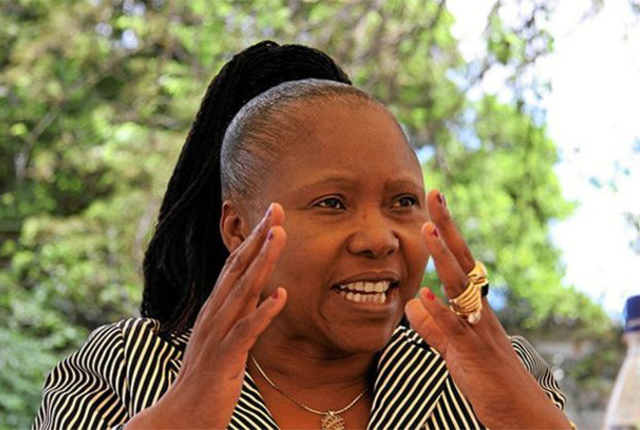EU backs elephant, lion trophy hunting

Tendai Mugabe : Senior Reporter
The European Union has thrown its weight behind Zimbabwe and Sadc’s position to reject the proposed ban on trophy hunting ahead of the Convention on International Trade on Endangered Species 17th Conference of Parties to be held in South Africa next week. Animal rights activists are pushing for the up-listing of elephants and lions from Appendix II to Appendix I at the upcoming CoP17.Appendix I include species threatened with extinction and if the proposal sailed through, Zimbabwe and other Sadc countries with huge population of elephants and lions would be banned from international hunting and trading in lions and elephants.
Zimbabwe’s position is that trophy hunting should not be banned, but should be allowed to continue in a sustainable way that benefited communities.
This position had received wide support from the region and the EU.
EU Head of Delegation to Zimbabwe Ambassador Philippe Van Damme told The Herald ahead of CoP17 that the European bloc supported sustainable trade in ivory that benefited communities.
“The EU has always said that trophy hunting is part of this use of natural resources on two conditions,” he said.
“One, that trophy hunting is on a sustainable way that has to be sustainable in a scientific way. Secondly, that trophy hunting should benefit communities and that is why the EU has introduced a proposal to strengthen international regulations around trophy hunting not to prohibit trophy hunting.”
He continued: “The international regulations so far have a couple of loopholes which do not guarantee the sustainability of trophy hunting and then guarantee that the benefits of trophy hunting will be shared in a fair way to communities involved which makes it sustainable in the long run.
“And since there is an international public opinion which is sometimes hostile because precisely they will refer to that the way trophy hunting is managed is not sustainable — the way we proposed this regulation is precisely to preserve trophy hunting as a viable source of revenue in countries like Zimbabwe which of course has potential. Zimbabwe has been discussing this resolution at Sadc level.”
Ambassador Van Damme said the EU would push for this resolution to be adopted at CoP17.
Environment, Water and Climate Minister Oppah Muchinguri-Kashiri said Zimbabwe had mobilised the region to ensure that trophy hunting was not banned.
“We mobilised for a position which Sadc will present as one where we are speaking with one voice in terms of the trade in ivory, in terms also of hunting and also for our lions population and quite a number of other issues that are of interest to Zimbabwe,” she said.
“Our officials have been meeting and we also have been meeting and I want to refer to a meeting that was organised in Botswana for ministers responsible for wildlife and at that forum we were also able to discuss our issues particularly the issue where we must as much as possible involve the community in whatever decision we make because these are the people who own these important natural resources and without their participation there will not be any success to talk about in terms of conservation issues of our wildlife and fauna.”
Minister Muchinguri-Kashiri said the Zimbabwe Council of Chiefs president Chief Fortune Charumbira also played a pivotal role in mobilising regional chiefs to speak strongly with one voice at CoP17.
“Chief Charumbira has gone a step further to mobilise other chiefs within our region so that as we go to CITES chiefs will have a very strong representation from the chiefs and communities who will be able to argue that the international community cannot make decisions for them,” she said.
“If we do not convince the communities to see value in living with these animals then we have no success story to talk about.”









Comments